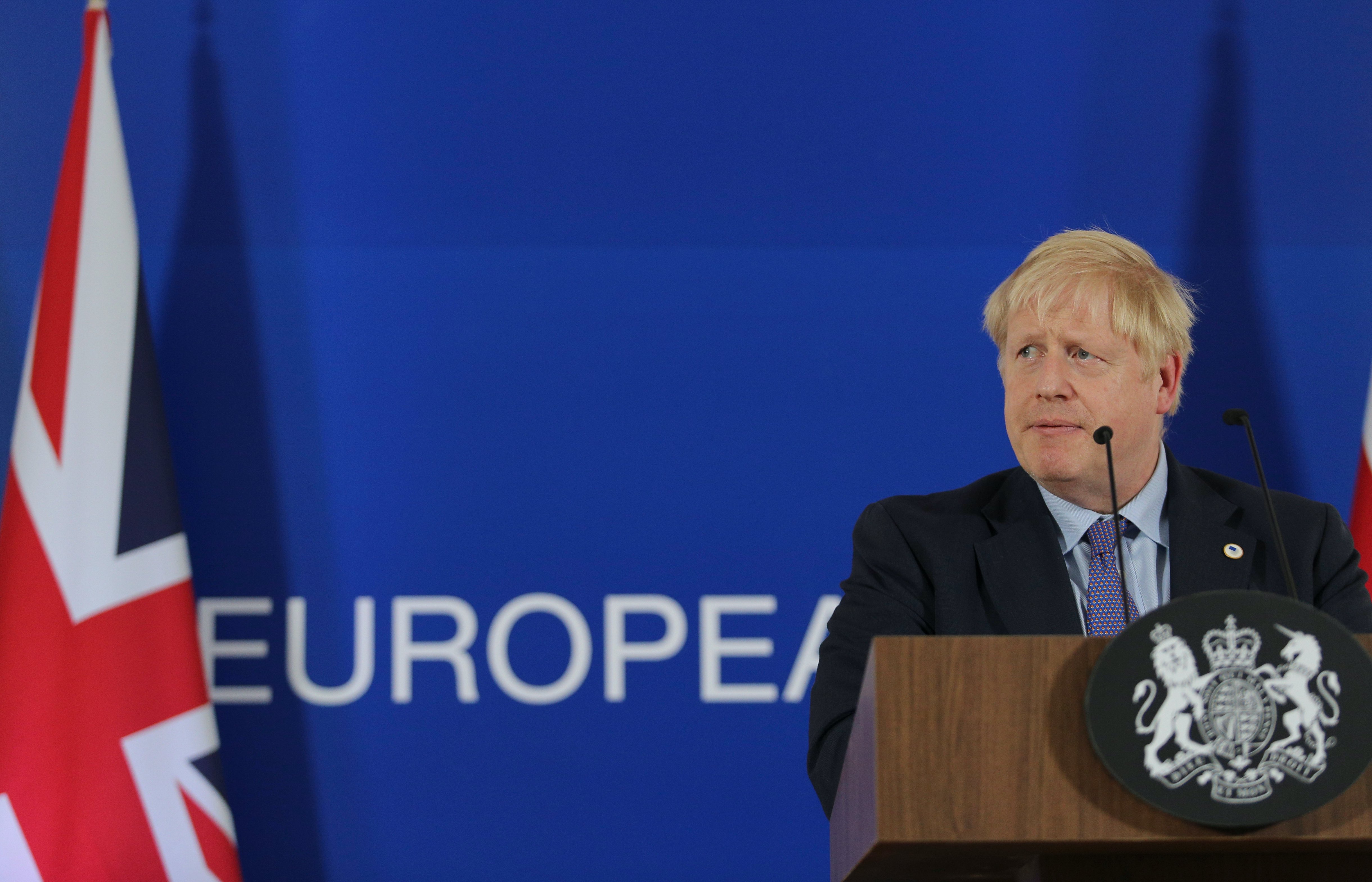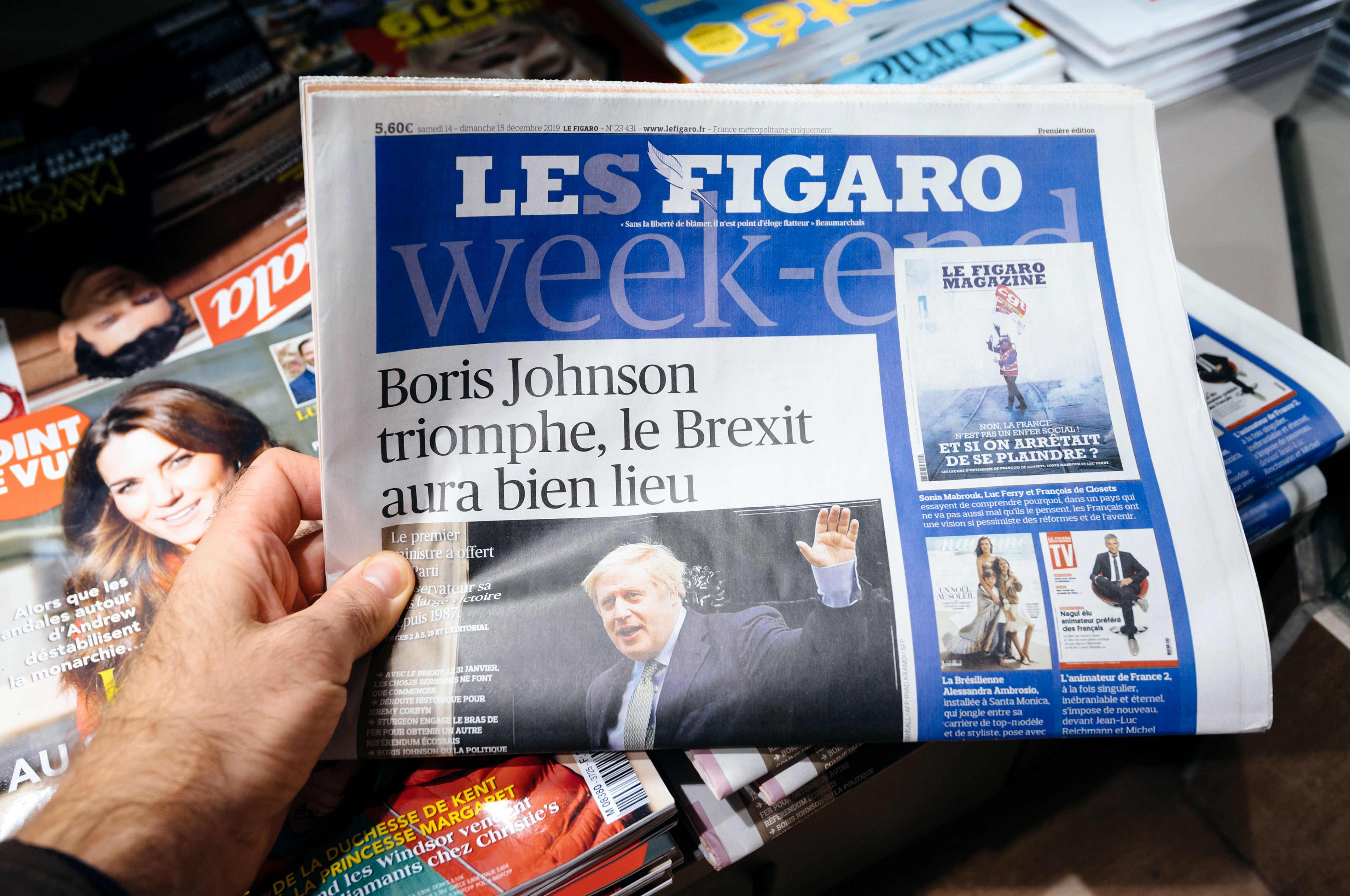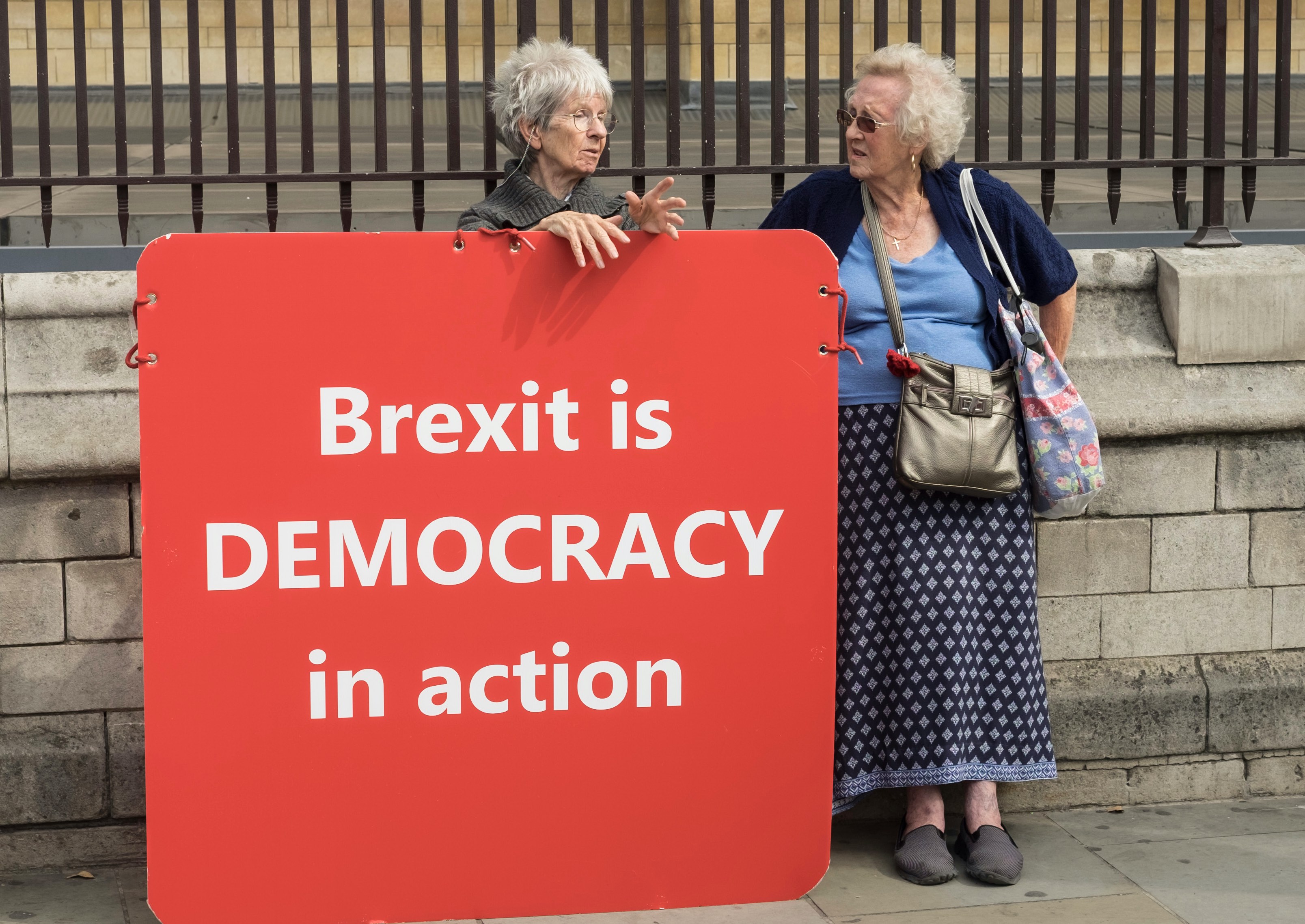
Politics & Society
The future of post-Brexit Britain

It was a stunning victory for Boris Johnson and the Tories in the UK’s general election, giving the party its biggest seat haul since 1987 – but what does the result tell us about 21st Century politics?
Published 23 December 2019
The landslide victory of Boris Johnson’s Conservatives in Britain was due to unique factors such as Brexit, but it contains lessons for countries like Australia and the United States.
A University of Melbourne expert panel debating Britain Has Voted: Now What? heard that the 12 December general election was the most consequential for decades, symbolising a re-alignment of politics and political parties.
The panelists were Professor Philomena Murray, professor in the School of Social and Political Sciences and an expert on the European Union, Associate Professor Timothy Lynch from the School of Social and Political Sciences, and Dr Tom Daly, the Assistant Director of the School of Government, and the Head of Democratic Decay & Renewal, a group seeking solutions to the deterioration of democratic governance worldwide.
“2019 has got a fair claim to being certainly the most consequential (British election) of the last 30 years,” said Associate Professor Lynch.
“It seems to be bringing about a fundamental re-alignment of British politics and changing fundamentally the nature of European Union politics.”

Politics & Society
The future of post-Brexit Britain
Professor Murray said the term used to describe the result was “tectonic”, a culmination of three and a half years of turmoil since the 2016 referendum that voted to leave the EU, a 28-member organisation designed to break down trade barriers and allow free movement between member states.
“We’re also looking at a re-alignment, a pulling away from traditional party voting,” Professor Murray said.
For Dr Daly, the significance was “to what extent the election and the campaign and politics in general in the UK reflect negative trends affecting democracies around the world, whether that be polarisation, fragmentation, fake news, winner-takes-all politics, declining trust in politics and resurgent nationalism”.
The election saw the Tories achieve their best result since 1987, with an 80-seat majority in the 650-seat House of Commons. Labour under Jeremy Corbyn was crushed, with the result its worst since the 1930s.

Ominously, it lost scores of working-class seats in the north-east of England and in Wales, constituencies that had supported Labour for generations.
The panellists agreed that the key issue was Brexit, with Johnson pledging to “Get Brexit Done”. Labour’s equivocal position – promising a second referendum – harmed it, especially in working class areas that had voted to leave the EU.
The result would mean that Britain would leave on 31 January, to be followed by protracted negotiations. There remain big challenges. The Scottish National Party won 48 of the 59 seats, a triumph that has led to renewed calls for another referendum to leave the UK.

Business & Economics
Brexit and Australia: The way forward
Then there’s the unresolved issue of the border separating Northern Ireland – which is part of the UK – and the Republic of Ireland, which is a member of the EU.
Apart from the bureaucracy needed on the border when goods are transferred, there are fears of renewed tensions.
“Three thousand people died in Northern Ireland in what’s called the Troubles,” said Professor Murray. “Thousands upon thousands are still bearing those scars (and) what we do not want is a return to the past.”
Professor Murray said that Brexit was far from done. “There are 759 major agreements that they (the UK) now have to leave, copy or amend. There are over 22,000 pieces of legislation… this is not done in a day or two.

“The UK is going to have to get used to being a middle power, however disinclined it is to accept that self-understanding, and that’s going to be a challenge as well. It will not be part of an economic and political block of over a half a billion people.”
While the experts stressed that the messages of the election cannot be neatly transposed to other countries, the result would resonate. The socialist Corbyn was personally unpopular, with claims of a tardy response to anti-Semitism within his party and a manifesto that was too radical.
“They overstuffed their manifesto and went to places that nobody expected them to go,” said Dr Daly.

Politics & Society
Negotiating trade post-Brexit
“I don’t think anyone was looking for free broadband. I don’t think many people were looking for free university. The Democrats in the US would study that carefully and try to offer policies that were doable.”
Professor Lynch said one lesson for progressive parties was to be wary of a “metro elite” telling tell the rest of the population how to live.
At the Australian federal election in May, and in Trump’s victory in 2016, some blue-collar workers shifted allegiance to conservative parties.
“I’m not validating that particular critique, but it’s a powerful one if you feel one of the dispossessed in Queensland, or in Manchester or in Wisconsin.”
If the Democrats “haven’t learned from Hillary Clinton’s disastrous campaign of 2016, Johnson’s victory in the UK should absolutely affirm that lesson, that you walk away from your traditional white working-class base at your peril.”

The right of politics, he said, understood the importance of culture, not only economics. “I’m not here to make you rich, to give you stuff, I’m here to put you back in the centre of the culture. I’m about salving your cultural alienation. The Left don’t have that language.”
Daly agreed to a point, but said the danger was that that message was too often “racially and ethnically coded… and that’s very troubling.”
Johnson may be charismatic and “authentic”, but he was yet to prove himself a serious politician able to solve complex challenges.
The election result is still fresh, and nobody can predict how it will turn out. But Murray believes Johnson has an opportunity to embrace some of Labour’s valid concerns.

Politics & Society
Is Europe heading for divorce?
“Concerns about poverty, the fact that the UK has over 2000 foodbanks, more than any other country in Europe. He has an opportunity to be brave and bold and deal with these issues.”
The other upside, she said, was potentially for Australia, which was in a “really lucky position” as it attempts to negotiate free trade deals. Both Australia and the UK are keen to sign a deal before the end of next year, and Australia is already in negotiations with the EU.
“I think the Australian government is going to be hugely pragmatic and hugely realistic,” she said, “but it’s in a very good position.”
Banner: Shutterstock